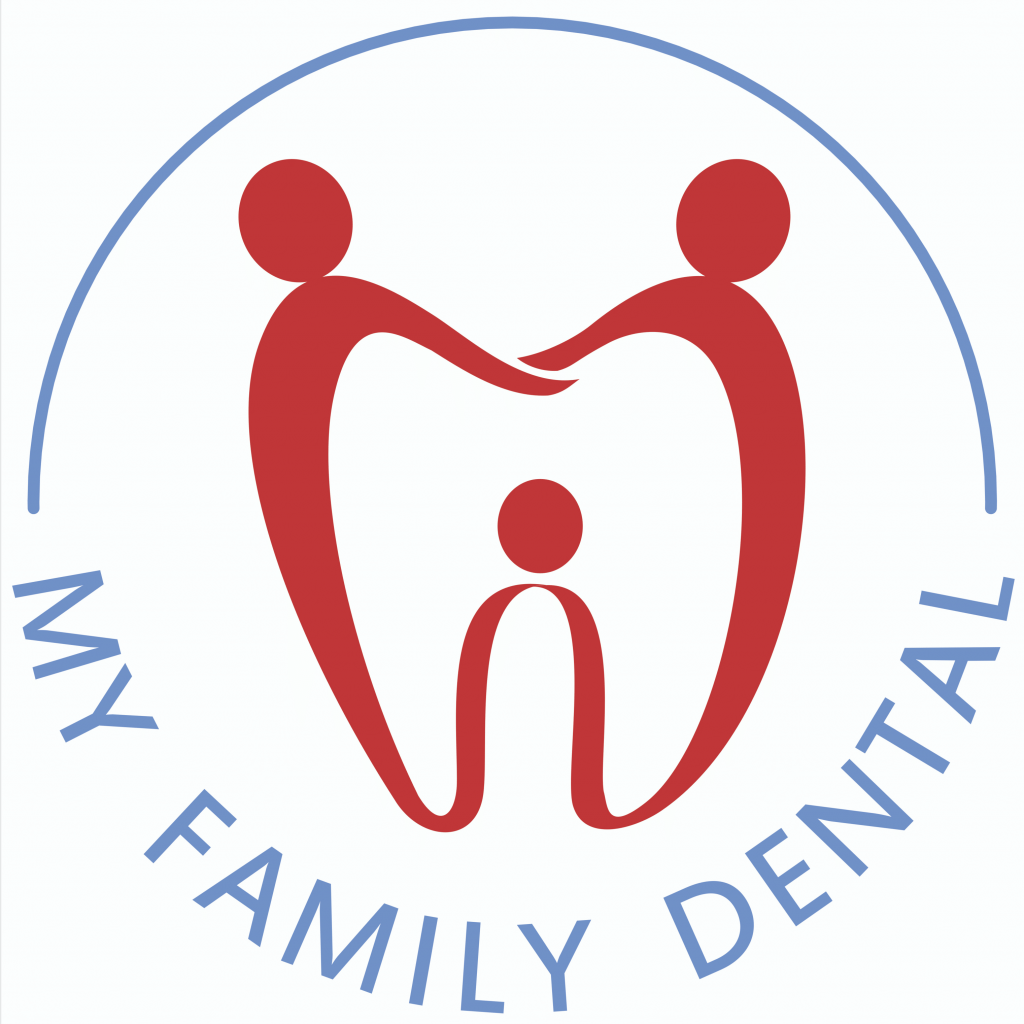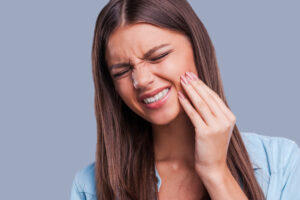Do you experience a short, sharp, painful sensation in your teeth when you eat ice cream, sip a hot cup of tea or even breathe in cold air? Chances are you have sensitive teeth. Tooth sensitivity is a painful condition that is more common in people aged 20 to 40 years old, but it can also affect teenagers and people over 70. It can occur in a single tooth or multiple teeth. For some people tooth sensitivity can indicate an underlying dental issue while for others it’s an ongoing condition that needs to be managed. While sensitive teeth cause a lot of discomfort, the good news is that managing sensitive teeth is relatively straightforward.
WHAT CAUSES SENSITIVE TEETH?
Teeth become sensitive when the outer layer of the teeth enamel that provides protection to the inner layer is worn away or lost. This outer layer does not have feeling, but when worn away, the inside layer can feel nerve pain when exposed to triggers such as hot and cold drinks or food, cold air or even brushing your teeth.
There are several underlying problems that can cause sensitive teeth:
- Worn tooth enamel from brushing your teeth with a hard bristled toothbrush or from brushing your teeth too hard
- Gum disease can cause your gums to recede, exposing the root surfaces which can trigger sensitivity
- Eroded teeth caused by highly acidic foods and drinks, reflux, or vomiting
- Tooth decay, worn teeth, leaky fillings, chipped or broken teeth
- Grinding or clenching your teeth during the night
- Post-dental treatment sensitivity (usually temporary with treatments such as crowns, fillings and teeth whitening)
Here are our seven dentist approved tips for managing sensitive teeth.
- VISIT YOUR DENTIST TO DETERMINE THE CAUSE
Visiting your dentist is the first step as they will help determine the possible cause as to why your teeth are sensitive. During your dental check-up, your dentist will check your teeth and gums as there may be underlying causes for your sensitive teeth that need to be addressed.
Tooth sensitivity is one of the main symptoms of gum disease, a dangerous gum tissue infection. If left untreated it can cause chronic mouth pain and even tooth loss so it’s important to visit your dentist regularly, especially if you have tooth sensitivity.
Your dentist can recommend products which can reduce tooth sensitivity at home including toothpastes and a tooth mousse which can be applied directly to the sensitive area to provide extra cover for the teeth.
- CHOOSE THE RIGHT TOOTHBRUSH
Common causes of tooth enamel wear are brushing too hard and using a toothbrush with tough bristles. The hard bristles can be too abrasive, slowly causing damage to the teeth. Aggressive brushing can cause the gums to recede exposing the sensitive parts of your teeth. A toothbrush with soft bristles is recommended and brush gently to preserve the surface of your teeth and gums. This is one easy fix when managing sensitive teeth
- USE A TOOTHPASTE DESIGNED FOR TOOTH SENSITIVITY
When you have tooth sensitivity, the type of toothpaste you use is very important. For example, whitening toothpastes are great at giving you pearly whites, but they can be abrasive and erode the enamel from your teeth leading to sensitive teeth. At My Family Dental we offer an in-chair teeth whitening treatment which is a great solution for whiter teeth without the damage.
If you have sensitive teeth, using a toothpaste specifically for sensitivity is best for treating and managing sensitive teeth and providing relief. Most of these toothpastes work by temporarily providing a protective barrier which fills in the tiny holes in your enamel reducing the exposure from triggers. After brushing your teeth at night with this toothpaste, don’t rinse your mouth, this allows the toothpaste to sit on your teeth and work while you sleep. You should notice an improvement within one week of using a sensitive toothpaste
- LIMIT FOOD AND DRINKS WHICH CAUSE SENSITIVITY
Acidic foods and drinks wear the enamel from your teeth which can result in sensitive teeth. These foods and drinks include soft drinks, lollies, highly processed foods, citrus fruits, coffee, dried fruits, and food and drinks high in sugar. You may want to reduce or eliminate some of these foods and drinks if you’re managing sensitive teeth. It’s also best to avoid food and drinks that are extremely hot or frozen which can cause discomfort.
- EAT ALKALINE FOODS
Alkaline foods are generally better for optimum oral health, especially if you have sensitive teeth. We recommend eating the following foods:
- Cheese and plain or sugar-free yoghurt
- Milk
- Leafy greens such as broccoli, kale, spinach, and bok choy
- Fibre-rich crunchy vegetables including carrot and celery
These foods will help to moisten your mouth and help fight acid and bad bacteria that can erode the enamel on your teeth.
- ADDRESS TEETH GRINDING OR CLENCHING
Grinding and clenching your teeth, either during the night or when you’re stressed, can thin your enamel making teeth more sensitive. At night you may require a mouthguard while sleeping to prevent the teeth from rubbing together. You may also benefit from stress-reduction techniques and tongue and jaw muscle exercises. Addressing grinding and clenching your teeth with your dentist is important when managing sensitive teeth.
- MAKE A SALT WATER MOUTHWASH
Rinsing your mouth out with saltwater can alleviate oral pain caused by tooth sensitivity. It can also freshen your breath, reduce inflammation and act as a natural antiseptic for a clean, healthy mouth. Bacterial growth can wear down your enamel, saltwater raises your mouth’s natural pH level and increases alkalinity, reducing the bacteria. We recommend gargling with a warm saltwater solution twice a day. Simply mix 1 teaspoon of table salt with 1 cup of warm water and gargle for 30 seconds, swishing it around your mouth. Expel and repeat until the solution is finished.
SENSITIVE TEETH TAKEAWAY
When it comes to managing sensitive teeth, there’s many solutions that you can do at home with the guidance of your dentist. If you’re experiencing pain from sensitive teeth, book your next dental appointment at My Family Dental, we have multiple locations across regional Queensland.
BOOK MY NEXT DENTAL APPOINTMENT
This article on managing sensitive teeth is intended to promote understanding of and knowledge about general oral health topics and to help begin the conversation with your dentist. It should not be used as a substitute for professional advice, diagnosis or treatment. Always seek the advice of your health care professional prior to applying this information to your own personal circumstances.



